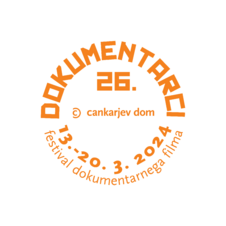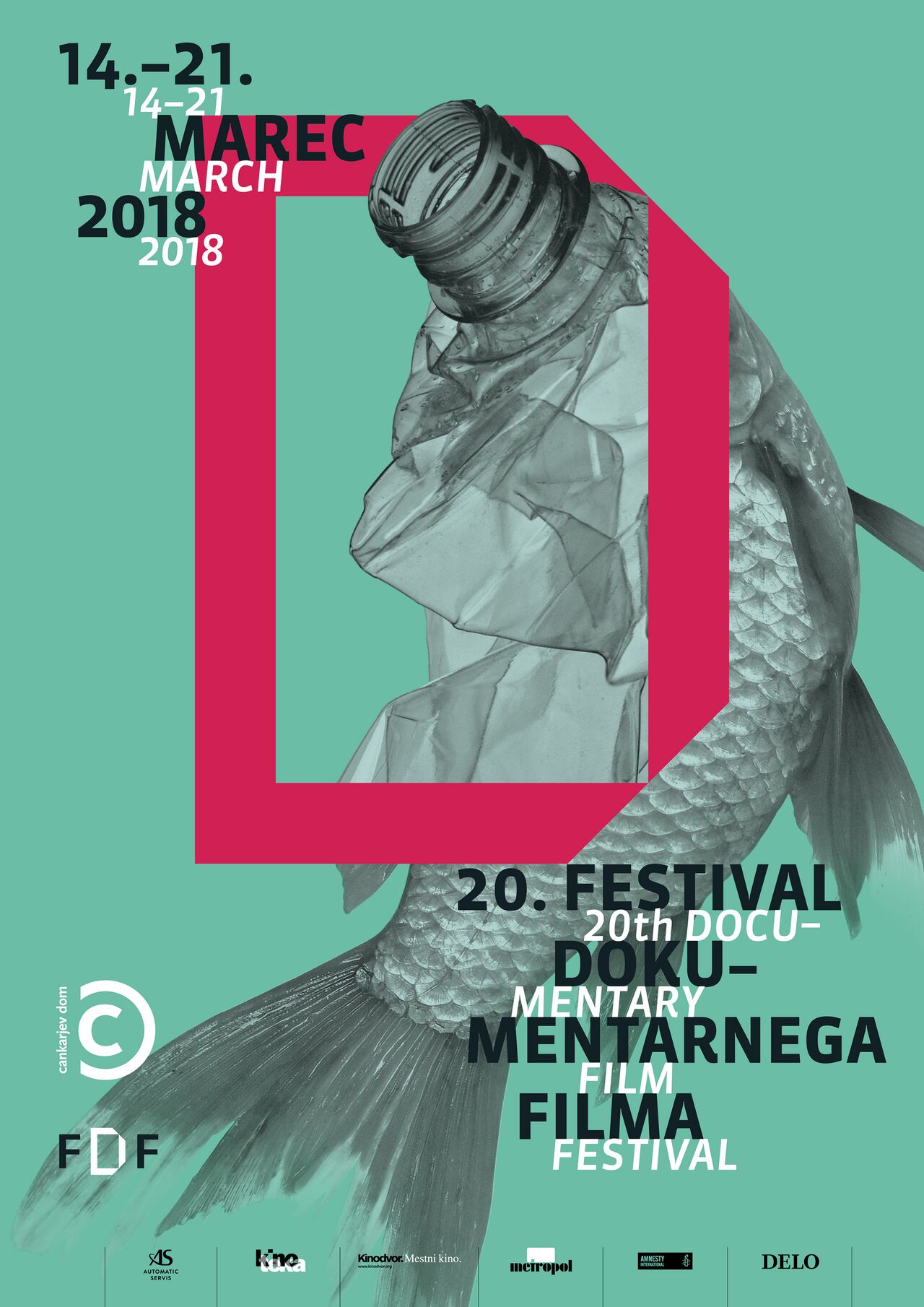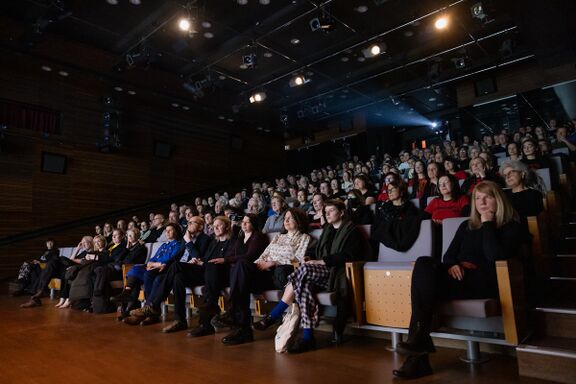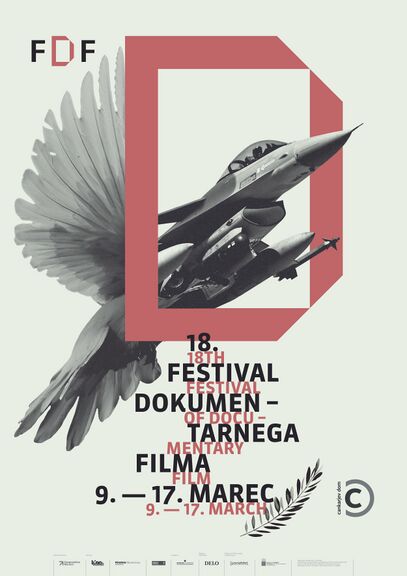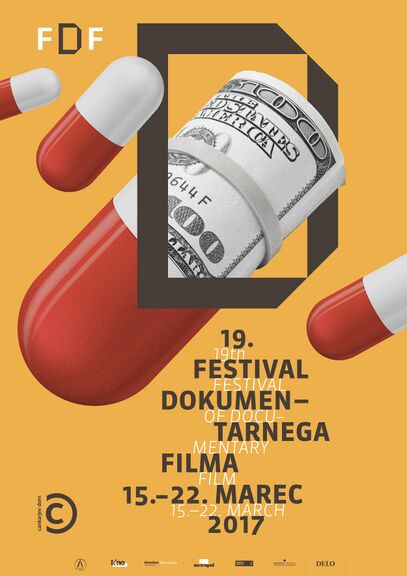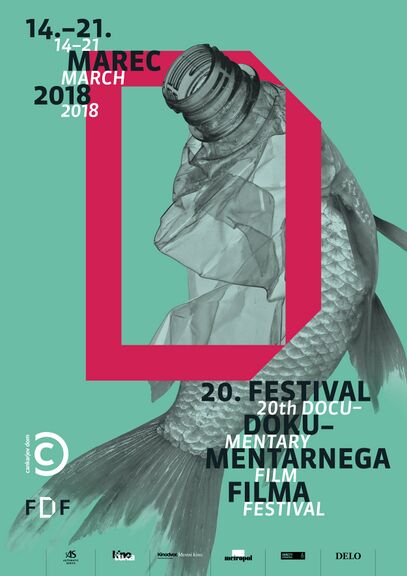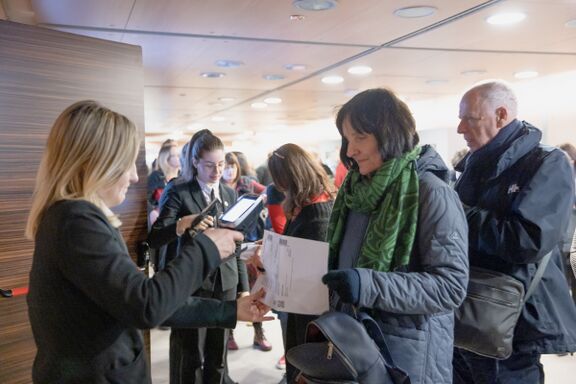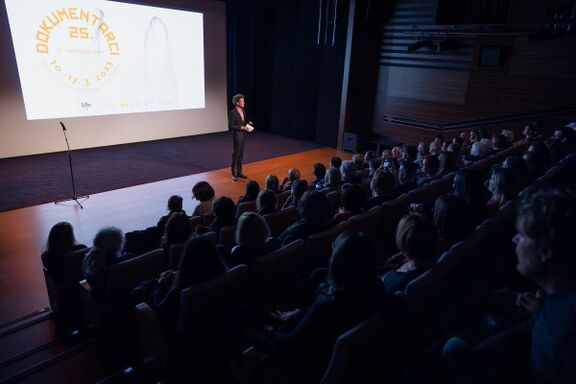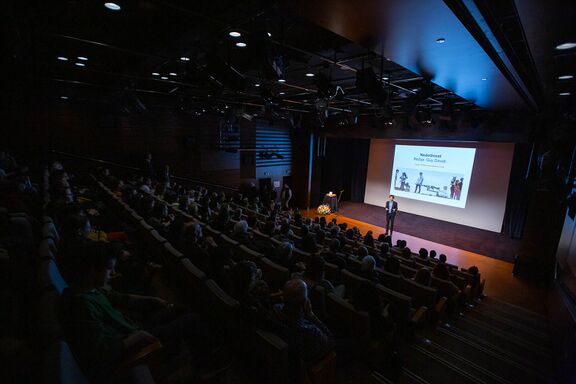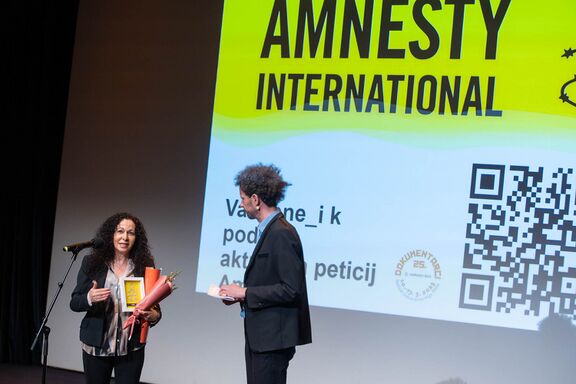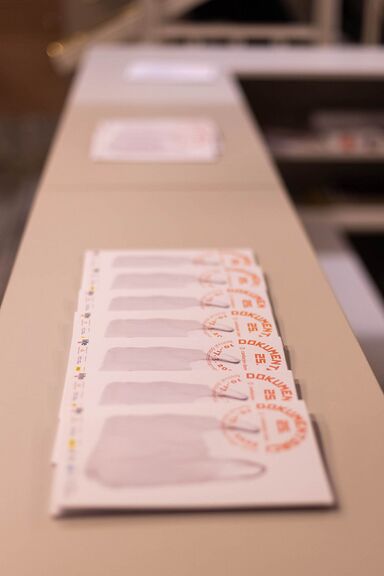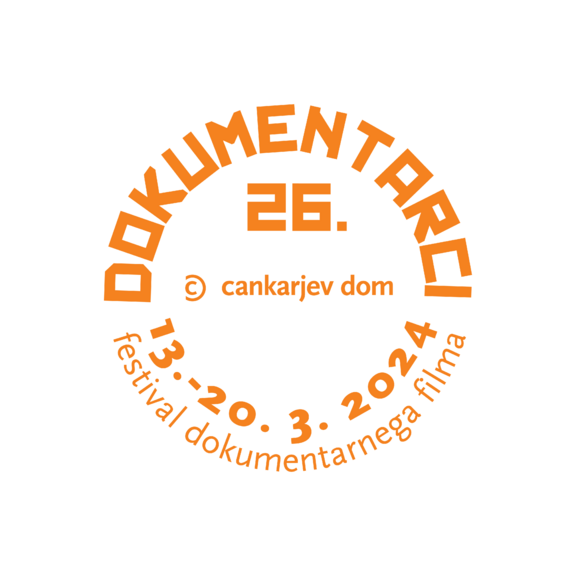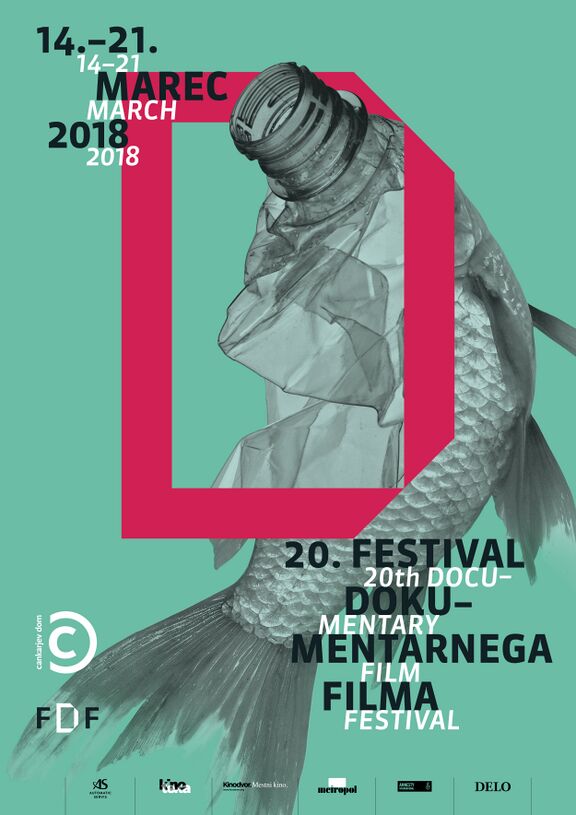Difference between revisions of "Ljubljana Documentary Film Festival"
Anže Zorman (talk | contribs) (fest date 2017) |
|||
| (24 intermediate revisions by 6 users not shown) | |||
| Line 1: | Line 1: | ||
{{Article | {{Article | ||
| status = | | status = | ||
| − | | maintainer = | + | | maintainer = Ziga Brdnik |
}} | }} | ||
| Line 7: | Line 7: | ||
| name = International Documentary Film Festival | | name = International Documentary Film Festival | ||
| local name = Festival dokumentarnega filma (FDF) | | local name = Festival dokumentarnega filma (FDF) | ||
| − | | logo = | + | | logo = Logo 26 fdf.png |
| street = Prešernova cesta 10 | | street = Prešernova cesta 10 | ||
| town = SI-1000 Ljubljana | | town = SI-1000 Ljubljana | ||
| Line 18: | Line 18: | ||
| dates and duration = March, 8 days | | dates and duration = March, 8 days | ||
| duration weeks = 12,13 (2012) 9,10 (2013) 11,12 (2014) 11,12 (2015) | | duration weeks = 12,13 (2012) 9,10 (2013) 11,12 (2014) 11,12 (2015) | ||
| − | | festival dates = 10.3.2015 - 17.3.2015, 9.3.2016 - 17.3.2016, 15.3.2017 - 22.3.2017 | + | | festival dates = 10.3.2015 - 17.3.2015, 9.3.2016 - 17.3.2016, 15.3.2017 - 22.3.2017, 14.3.2018 - 21.3.2018, 13.3.2019 - 20.3.2019, 9.6.2020 - 16.6.2020, 24.3.2021 - 31.3.2021, 9.3.2023 - 16.3.2023, 10.3.2023 - 17.3.2023, 13.3.2024 - 20.3.2024 |
| contacts = {{Contact | | contacts = {{Contact | ||
| name = Simon Popek | | name = Simon Popek | ||
| Line 26: | Line 26: | ||
| fax = | | fax = | ||
}}{{Contact | }}{{Contact | ||
| − | | name = | + | | name = Brane Kodrin |
| − | | role = | + | | role = Head of Organisation |
| − | | email = | + | | email = brane.kodrin@cd-cc.si |
| − | | telephone = 386 (0) 1 | + | | telephone = 386 (0) 1 2417 167 |
| fax = | | fax = | ||
}} | }} | ||
| Line 35: | Line 35: | ||
{{Teaser| | {{Teaser| | ||
| − | |||
| − | + | {{Image|20 FDF ovitek za splet def.jpg}} | |
| + | |||
| + | The [[Ljubljana Documentary Film Festival]] is a specialized competitive event established in 1998, focusing on contemporary documentary film production, particularly on films addressing social issues and phenomena. The 8-day festival occurs annually in March at the [[Cankarjev dom, Cultural and Congress Centre]], as well as at the [[Slovenian Cinematheque]] and [[Kinodvor Cinema]]. | ||
| + | |||
}} | }} | ||
| + | |||
| + | == Background == | ||
| + | |||
| + | In 1994, a section for documentaries was introduced at the [[Ljubljana International Film Festival (LIFFe)]], and it immediately received a great response from the audience. It quickly became clear that documentary film production had its audience, even a large one, although documentaries were rarely – if at all – screened in cinemas. It became one of the most popular sections among the audience of the Ljubljana International Film Festival (LIFFe) until it was discontinued from the official program after 1996. | ||
| + | |||
| + | Thus, it is not surprising that in [[1998]], the [[Documentary Film Festival]] was established. In the first few years, it was a specialized non-competitive festival that offered a general, quite unselective overview of contemporary documentary film production. Later, it introduced a competitive section for Mountain and Adventure Films (in 2007, it became a separate festival event, named the [[Mountain Film Festival]]). | ||
| + | |||
| + | Since 2007, when Simon Popek became the director and selector of the festival, it has transformed into a specialized competitive event that focuses on contemporary documentary film production, particularly on films addressing social issues and phenomena. | ||
| + | |||
| + | From its inception, the festival has been produced by [[Cankarjev dom, Cultural and Congress Centre]], with its program co-financed by the Ministry of Culture of the Republic of Slovenia. | ||
==Sections and awards== | ==Sections and awards== | ||
| Line 46: | Line 58: | ||
The main Competitive section, introduced in 2009 at the 11th Documentary Film Festival, is prepared in collaboration with Amnesty International Slovenia and is dedicated to documentaries that deal with human rights issues. Each year 5 or 6 films compete for the main award, the [[Amnesty International Slovenia Award]] for the best film on human rights issues. The winning film is selected by an international jury composed of three members (selected by the Amnesty International Slovenia). | The main Competitive section, introduced in 2009 at the 11th Documentary Film Festival, is prepared in collaboration with Amnesty International Slovenia and is dedicated to documentaries that deal with human rights issues. Each year 5 or 6 films compete for the main award, the [[Amnesty International Slovenia Award]] for the best film on human rights issues. The winning film is selected by an international jury composed of three members (selected by the Amnesty International Slovenia). | ||
| − | The Myths, Icons, Media section includes films on cultural icons, social and cultural phenomena, music and film stars, trends in mass culture and arts | + | The Myths, Icons, Media section includes films on cultural icons, social and cultural phenomena, music and film stars, trends in mass culture and arts. The Intimate Portrayals section offers intimate encounters with well known personalities or ordinary people, while the Topical, Socially Critical sections brings films that are critically focusing on actual social issues. The last is the Retrospective section which presents domestic and foreign directors or national productions. In the past years this section brought personal retrospectives of [[Jože Pogačnik]], [[Mako Sajko]], Nicolas Philibert, Raymond Depardon, as well as an overview of Bosnian documentary film production. |
Some of the films screened at the festival are later distributed by Cankarjev dom and screened in various theatres, including [[Cankarjev Dom/Kosovel Hall|Cankarjev dom's Kosovel Hall]] and [[Kinodvor Cinema]]). | Some of the films screened at the festival are later distributed by Cankarjev dom and screened in various theatres, including [[Cankarjev Dom/Kosovel Hall|Cankarjev dom's Kosovel Hall]] and [[Kinodvor Cinema]]). | ||
| + | |||
| + | {{Gallery}} | ||
==See also== | ==See also== | ||
| Line 56: | Line 70: | ||
* [[Cankarjev dom, Cultural and Congress Centre]] | * [[Cankarjev dom, Cultural and Congress Centre]] | ||
* [[Kinodvor Cinema]] | * [[Kinodvor Cinema]] | ||
| + | * [[Slovenian Cinematheque]] | ||
| + | * [[Mountain Film Festival]] | ||
| + | * [[Festival of Migrant Film]] | ||
==External links== | ==External links== | ||
* [http://www.fdf.si/index.php/en/ Documentary Film Festival in Ljubljana website] | * [http://www.fdf.si/index.php/en/ Documentary Film Festival in Ljubljana website] | ||
* [http://www.amnesty.si/ Amnesty International Slovenia website] (in Slovenian) | * [http://www.amnesty.si/ Amnesty International Slovenia website] (in Slovenian) | ||
| − | |||
Latest revision as of 11:08, 11 March 2024
Background
In 1994, a section for documentaries was introduced at the Ljubljana International Film Festival (LIFFe), and it immediately received a great response from the audience. It quickly became clear that documentary film production had its audience, even a large one, although documentaries were rarely – if at all – screened in cinemas. It became one of the most popular sections among the audience of the Ljubljana International Film Festival (LIFFe) until it was discontinued from the official program after 1996.
Thus, it is not surprising that in 1998, the Documentary Film Festival was established. In the first few years, it was a specialized non-competitive festival that offered a general, quite unselective overview of contemporary documentary film production. Later, it introduced a competitive section for Mountain and Adventure Films (in 2007, it became a separate festival event, named the Mountain Film Festival).
Since 2007, when Simon Popek became the director and selector of the festival, it has transformed into a specialized competitive event that focuses on contemporary documentary film production, particularly on films addressing social issues and phenomena.
From its inception, the festival has been produced by Cankarjev dom, Cultural and Congress Centre, with its program co-financed by the Ministry of Culture of the Republic of Slovenia.
Sections and awards
The Documentary Film Festival has 5 sections: Competitive; Myths, Icons, Media; Intimate Portrayals; Topical, Socially Critical; and Retrospective.
The main Competitive section, introduced in 2009 at the 11th Documentary Film Festival, is prepared in collaboration with Amnesty International Slovenia and is dedicated to documentaries that deal with human rights issues. Each year 5 or 6 films compete for the main award, the Amnesty International Slovenia Award for the best film on human rights issues. The winning film is selected by an international jury composed of three members (selected by the Amnesty International Slovenia).
The Myths, Icons, Media section includes films on cultural icons, social and cultural phenomena, music and film stars, trends in mass culture and arts. The Intimate Portrayals section offers intimate encounters with well known personalities or ordinary people, while the Topical, Socially Critical sections brings films that are critically focusing on actual social issues. The last is the Retrospective section which presents domestic and foreign directors or national productions. In the past years this section brought personal retrospectives of Jože Pogačnik, Mako Sajko, Nicolas Philibert, Raymond Depardon, as well as an overview of Bosnian documentary film production.
Some of the films screened at the festival are later distributed by Cankarjev dom and screened in various theatres, including Cankarjev dom's Kosovel Hall and Kinodvor Cinema).
Gallery
See also
- Amnesty International Slovenia Award
- Cankarjev dom, Film Programme
- Ljubljana International Film Festival (LIFFe)
- Cankarjev dom, Cultural and Congress Centre
- Kinodvor Cinema
- Slovenian Cinematheque
- Mountain Film Festival
- Festival of Migrant Film



